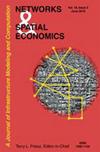The Economics of Force Majeure: The Price of ‘Financial Stability’
IF 1.5
3区 工程技术
Q3 OPERATIONS RESEARCH & MANAGEMENT SCIENCE
引用次数: 0
Abstract
In this paper, it is shown that, despite a tremendous number of sanctions that significantly modify the conditions of financial and economic equilibrium in Russia, the basic mechanisms, priorities and construction of the goals of the financial and economic policy have not changed. This is especially true for monetary and fiscal policy. The analysis of the parameters and results of budget planning for 2022–2023 has been carried out. Although there are no catastrophic failures of macroeconomic indicators according to the Ministry of Finance in 2022 and the official projections of the 2023 budget do not promise an increase in problems, the discrepancy between the actual possibilities to increase revenues and the imperative requirements to increase budget expenditures signal a serious deterioration of the budget situation, which requires urgent and adequate solutions. The author discusses the prospect of the state budget deficit turning into a permanent phenomenon accompanying the country’s economic development for a long period, due to the indefinite period of revenue suppression and acceleration of state budget expenditures, the reasons of which are long military expenditures and the duration of restructuring the structure and mechanisms of global and subglobal financial and economic interactions. In this paper, estimates of the budget deficit, which are alternative to the official data, have been made; estimates of real sizes and dynamics of budget deficits are proposed; and the concept of hierarchy and target concentration of budget expenditures is argued. The main tools for financing budget deficits (the National Welfare Fund, ruble devaluation, money emission, government borrowings) are analyzed, the possibilities and potential limits of their use are shown. It is shown that all of them, except domestic government borrowings, give a short-term effect and at the same time have a negative impact on macroeconomic equilibrium. The possibilities, direct and indirect consequences of the policy of reduction of budget expenditures are considered不可抗力经济学:“金融稳定”的代价
本文表明,尽管大量制裁措施显著改变了俄罗斯财政和经济均衡的条件,但财政和经济政策的基本机制、优先事项和目标构建并没有改变。货币和财政政策尤其如此。对2022-2023年预算规划的参数和结果进行了分析。尽管2022年财政部的宏观经济指标没有出现灾难性的失败,官方对2023年预算的预测也没有承诺问题会增加,但增加收入的实际可能性与增加预算支出的迫切要求之间的差异表明预算状况严重恶化,这需要紧急和充分的解决方案。由于长期的财政收入抑制和国家预算支出的加速,以及长期的全球和亚全球金融经济互动结构和机制的重构,国家预算赤字将成为长期伴随国家经济发展的永久性现象。本文对预算赤字进行了替代官方数据的估计;提出了预算赤字实际规模和动态的估计;并对预算支出的层次性和目标集中度的概念进行了论证。分析了为预算赤字融资的主要工具(国家福利基金、卢布贬值、货币发行、政府借款),并指出了这些工具使用的可能性和潜在限制。结果表明,除国内政府借款外,所有这些借款都具有短期效应,同时对宏观经济均衡产生负面影响。审议了削减预算支出政策的可能性、直接和间接后果
本文章由计算机程序翻译,如有差异,请以英文原文为准。
求助全文
约1分钟内获得全文
求助全文
来源期刊

Networks & Spatial Economics
社会科学-运筹学与管理科学
CiteScore
4.00
自引率
4.20%
发文量
26
审稿时长
>12 weeks
期刊介绍:
Networks and Spatial Economics (NETS) is devoted to the mathematical and numerical study of economic activities facilitated by human infrastructure, broadly defined to include technologies pertinent to information, telecommunications, the Internet, transportation, energy storage and transmission, and water resources. Because the spatial organization of infrastructure most generally takes the form of networks, the journal encourages submissions that employ a network perspective. However, non-network continuum models are also recognized as an important tradition that has provided great insight into spatial economic phenomena; consequently, the journal welcomes with equal enthusiasm submissions based on continuum models.
The journal welcomes the full spectrum of high quality work in networks and spatial economics including theoretical studies, case studies and algorithmic investigations, as well as manuscripts that combine these aspects. Although not devoted exclusively to theoretical studies, the journal is "theory-friendly". That is, well thought out theoretical analyses of important network and spatial economic problems will be considered without bias even if they do not include case studies or numerical examples.
 求助内容:
求助内容: 应助结果提醒方式:
应助结果提醒方式:


